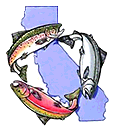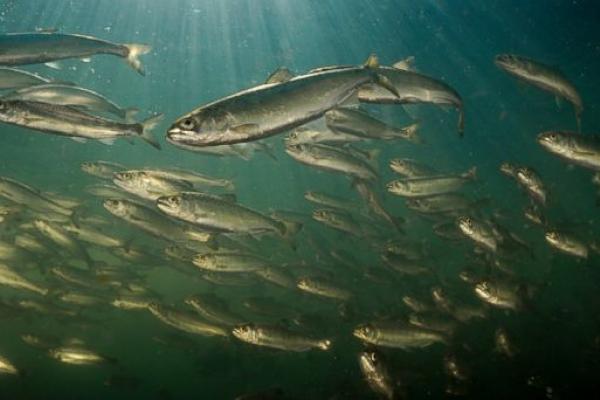Session Coordinators:
Cynthia Le Doux-Bloom, Humboldt State University, Department of Fisheries Biology
Nate Mantua, NOAA, Southwest Fisheries Science Center
Although many factors may be responsible for the declines in anadromous salmonid populations, this circumstance is commonly linked to the oceanic and estuarine conditions present during the smolt life cycle phase, which remains unstudied compared to riverine life phases. Upon saltwater entry, salmonids display a wide range of growth and survival rates and display a variety of movement and migratory behaviors, both tied to ocean and estuary productivity which influences the foraging conditions these individuals encounter across space and time.
These sessions will feature innovative and novel studies focused on understanding the ocean and estuary life cycle phase of Pacific salmonids, including: (1). An Overview of Seascape Ecology and Current Events; (2). Movement and Migration; (3). Survival and Growth; and (4). Foraging Conditions influenced by the California Current.
20 in 2020: Twenty years of Seascape and Salmon Studies on the Pacific West Coast
Nate Mantua, PhD, NOAA Fisheries
Impact of a Marine Heat Wave on Pacific Salmon Habitat
Steven Lindley, PhD, NOAA Fisheries
Individual-based Models as a Tool for Predicting Juvenile Salmon Growth and Mortality under Changing Ocean and Climate Conditions
Jerome Fiechter, PhD, University of California at Santa Cruz
Ocean Distribution of West Coast Chinook Salmon Inferred from Coded-wire-tags and Genetic Data
William Satterthwaite, PhD, NOAA Fisheries
Seascape Behavior and Distribution of Acoustically Tagged Salmon along the Washington Coastal Shelf
Brian Wells, PhD, NOAA Fisheries
Ocean Movement and Behavior of Steelhead Revealed by Pop-up Satellite Archival Tags
Emily Miller, PhD, Monterey Bay Aquarium
Talks will be followed by a Presenter Panel Discussion

